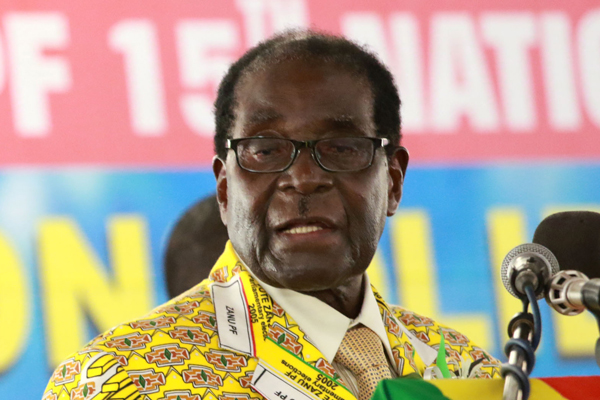
President Robert Mugabe is known for being stubborn and some believe this is one of the traits that have kept him in power longer than most leaders in the modern world.
BY RICHARD CHIDZA
A few people have in the past shown that he is human after all by forcing him to the negotiating table and one such person was the late Chenjerai Hunzvi.
Hunzvi shot to prominence in 1997 as the leader of the Zimbabwe National Liberation War Veterans’ Association (ZNLWVA), which threatened street protests until Mugabe granted the former fighters gratuities and pensions.
Mugabe was forced to dole out about $2 500 each to the estimated 50 000 liberators and monthly pensions.
This was after Hunzvi led protests against Zanu PF and threatened to escalate the fight if Mugabe did not relent.
The current ZNLWVA leadership represented by Christopher Mutsvangwa has not shown any militancy to match Hunzvi after their attempts to protest against Zanu PF were ruthlessly crushed by the police last month.
However, Mugabe’s decision to call for a meeting with the war veterans on April 7 demonstrates that he fears the capacity of the former fighters to mobilise against him, analysts said.
- Chamisa under fire over US$120K donation
- Mavhunga puts DeMbare into Chibuku quarterfinals
- Pension funds bet on Cabora Bassa oilfields
- Councils defy govt fire tender directive
Keep Reading
University of Zimbabwe political science lecturer Eldred Masunungure said Zanu PF had benefitted from war veterans’ willingness to mobilise for the party and Mugabe does not want to drive them away.
“It’s fairly evident that there is a gladiation for the values of the liberation struggle and support from war veterans,” he said.
“It is a realisation that they are still a potent mobilisation force that can be put to good use if they support you and can be a real negative if against your party.
“Clearly, Zanu PF has benefitted from abusing them since the March 1980 elections”.
War veterans are not happy with First Lady Grace Mugabe’s growing influence in the race to succeed Mugabe.
Some have already ditched the party to join former vice-president Joice Mujuru’s Zimbabwe People First (ZimPF).
They include former ZNLWVA chairman Jabulani Sibanda and another war veteran Agrippa Mutambara, who recently resigned from government to join ZimPF.
“For real revolutionaries, it is time to move. Zanu PF has lost the trust of the people,” Sibanda said.
Masunungure said Mugabe had realised that he could no longer use divide and rule tactics on war veterans, hence his overtures.
“The efforts seem to have become counter-productive and Mugabe clearly realised it very quickly and I do not think by agreeing to meet them he is scared,” he said.
“[It’s] just that he has realised that it would make better political sense to soothe them than antagonise [them].
“I think some people had indicated wrongly to him that the war veterans are a dying force. “Now he has turned around and wants to appear to be a unifier when it is clear he was part of the bid to divide.”
Masunungure said Mugabe’s charm offensive showed that the former fighters were indispensable for Zanu PF.
“Disregarding the war veterans as a spent force is not only futile but dangerous. They have shown they are a force to reckon with,” he said.
“They remain as indispensable as ever. Mugabe has realised they are still a robust political force. “They had indicated clearly that they were prepared to part ways with him.
“To remove him as patron was too close for comfort for Mugabe. His ego is bruised and his power base was rattled by that.”
But political analyst Ibbo Mandaza believes war veterans have lost their influence in Zanu PF.
“They are a divided and depleting force, particularly as it relates to Zanu PF,” he said.
“The real war veterans have long left Mugabe and Mutambara, whose nom-de-guerre was Dragon Patiripakashata’s latest move is instructive of that fact. He was a very senior commander during the war.”
Mutsvangwa says by agreeing to attend the meeting, Mugabe was rejecting the G40 faction, which is linked to his wife.
“For us, the April 7th meeting is a clear rejection of the G40 agenda. It was an emphatic rejection of all that faction stands for and the president is returning to base, where it all started,” he said.
“We are along with him as war veteran number one, the owners and creators of the nation state that we call Zimbabwe today.”
War veterans led a violent campaign to keep Mugabe in power following the formation of the MDC in 1999 and when he faced the opposition party’s leader Morgan Tsvangirai in presidential elections two years later.
Mugabe lost the first round of the 2008 elections to Tsvangirai but once again managed to hang on after war veterans intervened.









